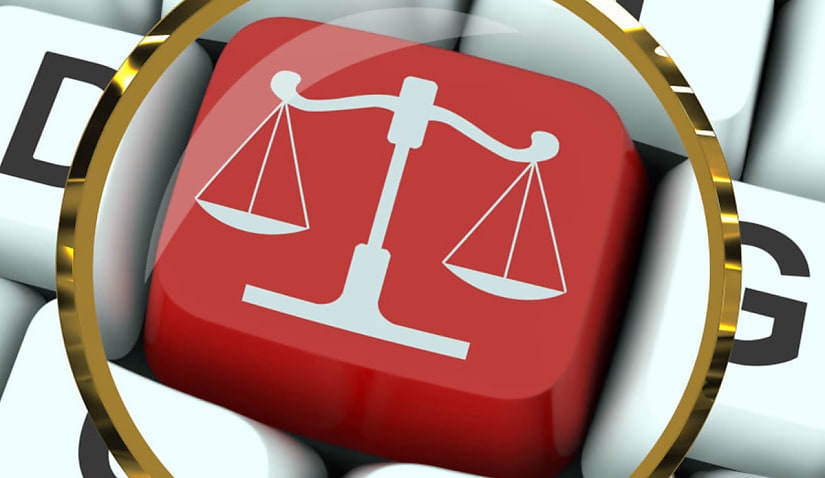Clarity shouldn’t be a luxury. In a world drowning in legalese, complexity, and cognitive overload, a simple summary could be the difference between informed consent and costly confusion, writes Rebecca Ward, MBA.

I recently discovered the meaning of “TL;DR”: Too Long; Didn’t Read. Since then, I’ve become convinced this little acronym should accompany every long-winded conversation, complicated essay, and dense legal contract. Imagine how liberating it would be to cut through complexity with a simple, upfront summary that tells you precisely what you need to know.
Picture yourself receiving a hefty legal document, brimming with jargon, clauses nested inside other clauses, and endless references to subsections. It’s daunting and intimidating. Yet, right there at the top, imagine seeing this succinct gem: “TL;DR: If you sign this, you’ll be giving away rights you didn’t know you had.”
Suddenly, clarity emerges from chaos. While lawyers might understandably argue that complex language is essential to preserve exactness and mitigate ambiguity, surely clarity doesn’t need to be sacrificed on the altar of precision. Even lawyers become overwhelmed by the sheer volume of words, evidence, and sentences such as “corresponding to the correspondence while pertaining to the pertinence in submitting the submission of the aforementioned matter” associated with complex documentation. If professionals find it tedious, imagine how non-experts feel.
This isn’t just theoretical. In 2017, the Federal Court of Australia ruled that Jetstar’s online terms and conditions contained unfair contract terms under Australian Consumer Law. Despite customers routinely clicking “I agree”, those terms included limitations on refunds and rights that contradicted consumer guarantees. The Australian Competition and Consumer Commission (ACCC) intervened, arguing that the clarity and fairness of the language was not just a courtesy; it was a legal requirement. This case underscores how often individuals consent to terms without truly understanding them, and how legal clarity matters at every stage of communication.
Clarity, rather than complexity, should be the cornerstone of effective communication, especially in legal contexts. Psychological research confirms that cognitive overload can lead to misunderstandings and costly mistakes (Sweller, 1988). Nobel laureate Daniel Kahneman (2011), in Thinking, Fast and Slow, distinguishes between two modes of thinking: rapid, intuitive “System 1”, and slower, logical, reflective “System 2”. Complex documents typically trigger System 1, which relies on shortcuts and intuition, increasing the risk of errors as important details may be overlooked or misunderstood (Kahneman, 2011).
Integrating TL;DR summaries into legal communications could significantly benefit both lawyers and clients. First, clear comprehension reduces misunderstandings and potential legal disputes, lowering litigation costs and stress. Second, transparency fosters trust and cooperation within the lawyer-client relationship. Finally, streamlining documents saves time for both parties, allowing legal professionals to concentrate on higher-value tasks.
Critics might argue that a TL;DR oversimplifies nuanced legal content. However, providing an initial concise overview complements rather than replaces detailed analysis. A TL;DR summary acts as a roadmap, guiding readers to key issues requiring deeper examination. This practice aligns with contemporary communication norms, emphasising succinctness and user-friendly accessibility (Drucker, 2006).
Consider disputes that arise purely from overlooked or misunderstood terms. How many costly, stressful legal battles could have been avoided if essential points had been clearly summarised upfront? Like the “Previously on …” segments in television dramas, a TL;DR summary provides immediate context and clarity, reducing cognitive load and enhancing understanding.
In a digital age where users frequently accept lengthy terms and conditions without scrutiny, clear and concise communication becomes even more essential. As the Jetstar case shows, these aren’t just throwaway lines; they carry legal and financial implications. The ACCC has also taken action against companies like JJ Richards & Sons for standard form contracts that lacked clarity and balance, particularly where customers were unlikely to read or negotiate them. In each case, complexity became a liability.
Legal documentation should empower, not overwhelm. Adopting concise summaries demystifies intimidating legal jargon and invites broader engagement, thereby increasing compliance and understanding. Legal professionals can enhance the effectiveness of their work by embracing clarity without sacrificing precision.
The introduction of a TL;DR is not merely a convenience; it’s a critical step towards transparency and empowerment. It addresses the modern challenge of information overload by succinctly highlighting the essential terms, allowing clients and users to make informed decisions quickly and confidently.
Ultimately, adopting TL;DR statements could transform the legal profession by prioritising clear communication, enhancing client understanding, and building trust. Next time you draft a lengthy document, consider providing your client with the gift of simplicity. A succinct TL;DR might not only make their day but also streamline interactions and improve productivity.
In an era where efficiency is highly valued, reducing complexity through simple summaries could become an expected standard rather than an innovative practice. Businesses, lawyers, and institutions that embrace TL;DR summaries may enjoy improved client relations, fewer disputes, and a clearer path toward mutual understanding.
After all, clarity and comprehension benefit everyone: clients, courts, and lawyers alike. TL;DR might be brief, but its potential impact is substantial.
Rebecca Ward is an MBA-qualified management consultant with a focus on mental health. She is the managing director of Barrister’s Health, which supports the legal profession through management consulting and psychotherapy. Barristers’ Health was founded in memory of her brother, Steven Ward, LLB.